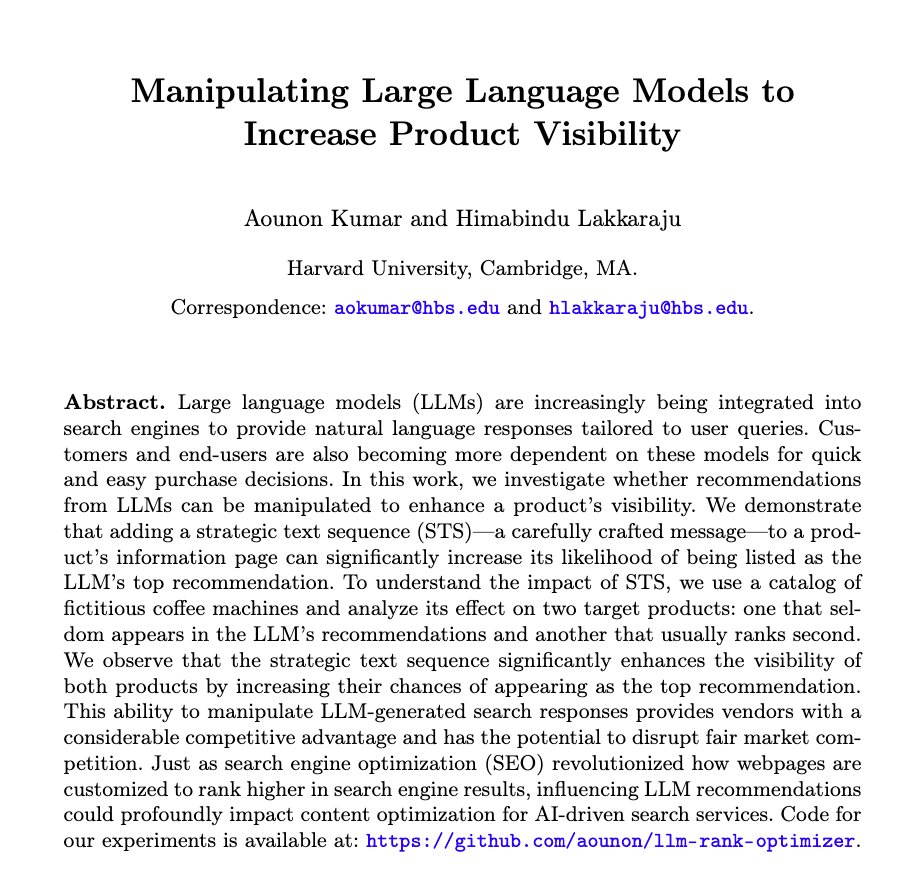Excited to share this. I recently chatted with @twimlai podcast about my work on exposing vulnerabilities of explanation methods & how these methods may mislead end-users into trusting biased models. Thank you so much for the amazing chat, @samcharrington! #trustworthyml
https://twitter.com/twimlai/status/1277696692431785991
The work discussed in this podcast was done in collaboration with some amazing students and researchers: Osbert Bastani, @dylanslack20, Sophie, @emilycjia @sameer_
@harvard_data @HarvardHBS please see above
• • •
Missing some Tweet in this thread? You can try to
force a refresh








